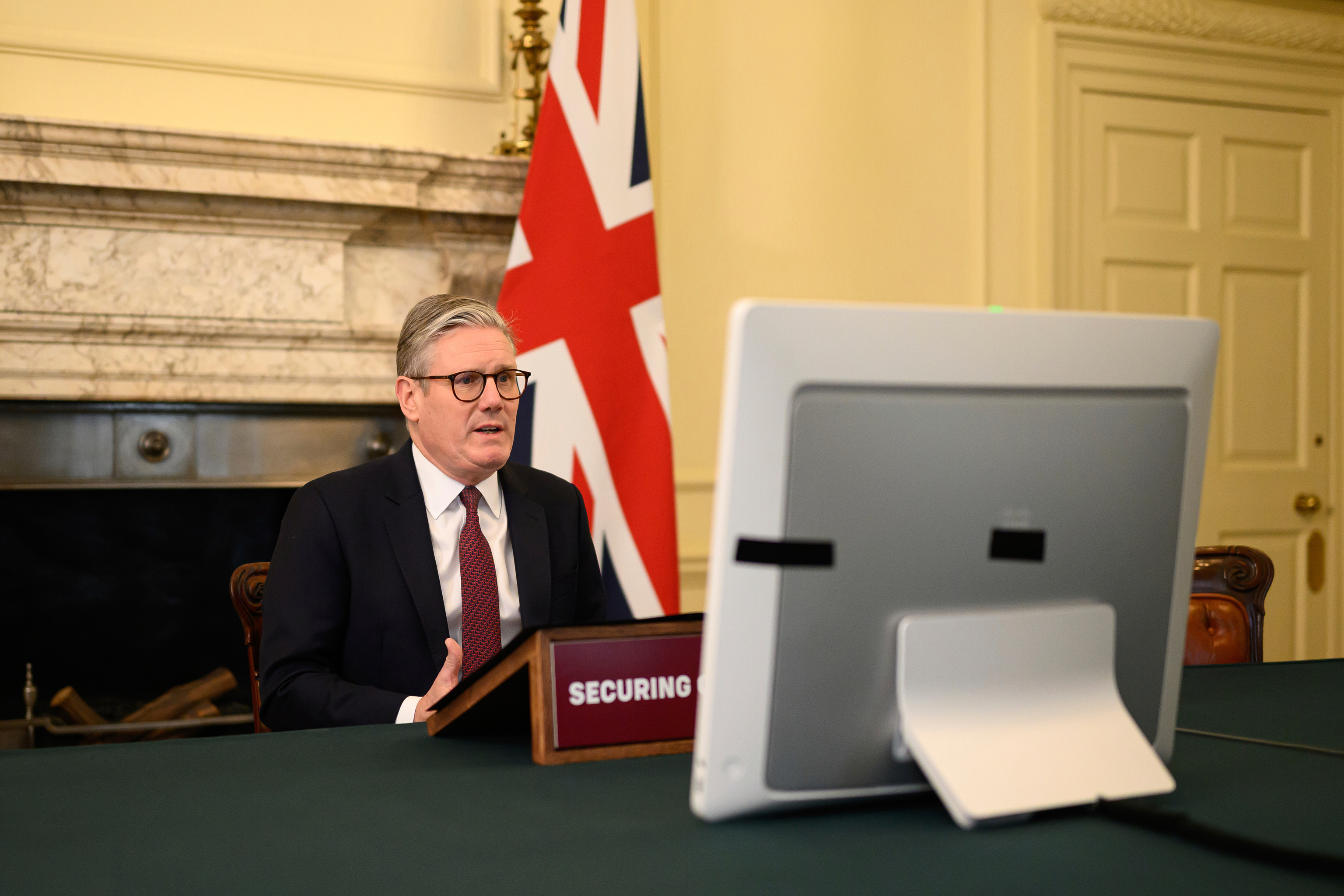The volunteer coalition will kick off next Thursday with a meeting in London of high-ranking military officials from the countries forming it to begin coordinating the technical aspects of deploying peace forces in Ukraine.
In theory, the mission of these forces will be to safeguard the future ceasefire between Russia and Ukraine. In practice, their mission will be to protect Ukraine. It will be a role similar to the 24,000 U.S. soldiers stationed in South Korea since the ceasefire reached in 1953 between that country and North Korea.
Therefore, there will be, at least on paper, a risk that the volunteer coalition - a term not without a certain irony, coined by the U.S. in 2003 to refer to the countries that accompanied it in the invasion of Iraq - may come under attack or have to defend Ukraine.
Planning all of this is not going to be easy. And even more so because this seems destined to be the first exclusively European military mission, without any U.S. support since World War II. Unless the Donald Trump administration changes its stance, Washington will not provide air cover, logistical support, or intelligence to the Europeans, which may also include Australian and New Zealand soldiers, although the list of countries is still uncertain.
The meeting of military officials next Thursday is the most substantial agreement from the virtual summit held yesterday at the request of British Prime Minister Keir Starmer, with the participation of 28 countries, a larger number than the attendees at the March 2 meeting in London. On this occasion, Starmer unsuccessfully tried to get Japan to join.
The words spoken yesterday by Starmer aimed to exert pressure on Vladimir Putin and urge the coalition to take action. The Prime Minister started the summit by stating, "My impression is that sooner or later [Putin] will come to the negotiating table, but - and this is an important 'but' in this meeting - we cannot sit back and wait for that to happen." He added that now is the time to "exert maximum pressure on Russia" and that sanctions must continue to "weaken Putin's war machinery and bring him to the table."
In the same vein, French President Emmanuel Macron stated in an interview last night that Europe and the United States must exert clear "pressure" on Russia to accept a ceasefire because "it does not seem to genuinely want peace."
Starmer portrayed yesterday's summit as a step in the plan to preserve the existence of Ukraine - something that Donald Trump questioned this week - to its "operational phase," where "progress will be made in developing practical plans on how our Armed Forces can help ensure Ukraine's future security." However, the reality is that the key aspects of the operation are still undefined.
The most obvious is who will participate. At the moment, only two countries have explicitly confirmed the deployment of soldiers to Ukraine, the UK and France. In fact, this week, the British Defense Minister and Chief of the Defense Staff, John Healey and Tony Radakin, respectively, were in France to start planning the operation. Also, Australia expressed yesterday its openness to contribute with troops. If Australia, a country located exactly on the opposite side of Europe, contributes to the war effort while NATO countries abstain, it would be a blow to the image of European unity that is being sought.
But that is the reality. In a statement released, the office of Italian Prime Minister Giorgia Meloni "reiterates that national participation in a possible military force in Ukraine is not planned." Italy opposes sending soldiers without a UN resolution. Rome could be the first defection from the coalition, although Meloni's statement is vague enough to leave the door open to a change of mind in the future. In fact, the Italian Prime Minister plays with ambiguity, combining Atlanticism while trying to safeguard her close relationship with Donald Trump and Elon Musk.
In reality, the ambiguity is not exclusive to Meloni. It is not known which countries will send their military commanders to London on Thursday, nor, obviously, the distribution of functions, the chain of command, or the logistical network of the peace force. Training Ukrainian soldiers in Lviv, for example, 1,000 kilometers from the front, is not the same as doing it on the possible separation line in Donbas.
In principle, the UK and France are expected to practically take on the leadership role, not only due to the political position of their respective governments but also because their Armed Forces are, by a significant margin, the most capable in Europe, and have recent combat experience. And all of this is pending Germany's decision.
Yesterday's virtual meeting stalled on a key issue: the use of the 300 billion euros frozen by the Russian state in the countries that participated in the summit to finance the purchase of weapons for Ukraine. To date, the interest generated by that capital has only been used twice - once by the EU, and once by the UK. London wants the principal to be used, but Paris and Berlin oppose it. Starmer's "operational phase" still has a long way to go.
